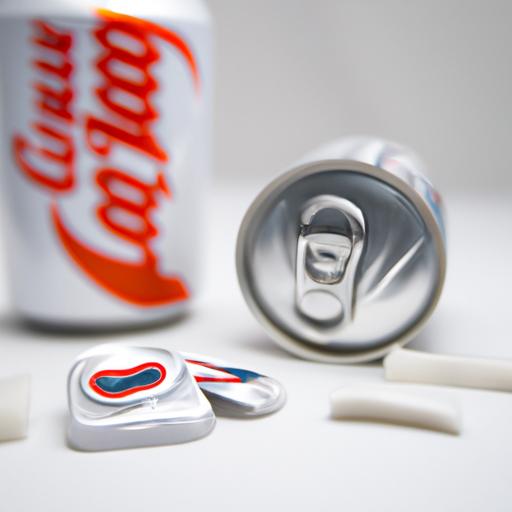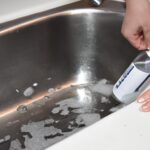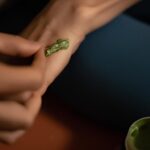Diet soda has become a popular beverage choice for those looking to cut back on calories or sugar. While it may seem like a healthier option, the reality is that diet soda can have negative effects on your oral health. In this article, we will explore the impact of diet soda on your teeth and overall oral health.
First, let’s define what diet soda is. Unlike regular soda, which contains high amounts of sugar, diet soda is artificially sweetened, making it a popular choice for those on a low-sugar or low-calorie diet. However, the use of artificial sweeteners in diet soda can have detrimental effects on your teeth.
Now that we have established what diet soda is, let’s dive into the main focus of this article: the impact of diet soda on your teeth.
The Ingredients in Diet Soda

Artificial Sweeteners Used in Diet Soda
Diet soda may be free of sugar, but it still contains artificial sweeteners such as aspartame, saccharin, and sucralose. These sweeteners are highly concentrated and up to hundreds of times sweeter than regular sugar. While they may seem like a healthier alternative to sugar, they can have negative effects on your teeth.
How These Sweeteners Affect Teeth
Artificial sweeteners in diet soda can cause tooth decay and erosion. When consumed, these sweeteners are converted into acid by bacteria in your mouth. The acid attacks your tooth enamel, causing it to weaken and eventually erode. This erosion can lead to cavities, sensitivity, and even tooth loss.
Additionally, the carbonation in diet soda can also contribute to tooth erosion. The carbonation produces carbonic acid, which can weaken your tooth enamel over time. This makes your teeth more susceptible to erosion and decay.
While artificial sweeteners may be a good option for those looking to cut back on sugar, they should still be consumed in moderation. In the next section, we will explore the acidity of diet soda and its effects on your teeth.
The Acidity of Diet Soda

Diet soda is not just harmful to your teeth due to its high sugar content, but also because of its acidity. The pH levels of diet soda are typically much lower than those of regular soda, making it more acidic. This high acidity can have detrimental effects on your teeth.
pH Levels of Diet Soda
The pH level of a substance measures its acidity or alkalinity. The pH scale ranges from 0 to 14, with 7 being neutral. Anything below 7 is considered acidic, while anything above 7 is considered alkaline. The pH level of diet soda can vary depending on the brand and type, but it typically ranges from 2.5 to 4.2. For comparison, battery acid has a pH level of 1, while water has a pH level of 7.
Effects of Acidity on Teeth
When you drink something acidic like diet soda, the acid can attack your tooth enamel, which is the hard outer layer of your teeth. Over time, this can lead to erosion of the enamel, exposing the softer and more sensitive layers of your teeth. This can cause tooth sensitivity, discoloration, and even cavities.
Furthermore, the acid in diet soda can also cause dry mouth, which can lead to an increased risk of tooth decay. Saliva helps to neutralize acid in your mouth and wash away food particles and bacteria. When your mouth is dry, there is less saliva to protect your teeth, leaving them vulnerable to decay.
Overall, the high acidity of diet soda can have serious negative effects on your teeth. It is important to be mindful of your soda consumption and take steps to protect your oral health.
The Link Between Diet Soda and Tooth Decay
Studies on the Relationship Between Diet Soda and Tooth Decay
Several studies have shown a clear link between the consumption of diet soda and an increased risk of tooth decay. In fact, one study found that those who drank three or more glasses of soda per day had a 62% higher risk of tooth decay compared to those who did not drink soda.
Another study conducted by the University of Michigan found that people who drank diet soda had a higher risk of tooth decay than those who drank regular soda. The researchers found that the acidity levels in diet soda were much higher than in regular soda, which can erode tooth enamel and lead to cavities.
How Diet Soda Contributes to Tooth Decay
The high acidity levels in diet soda are a major contributing factor to tooth decay. When you drink diet soda, the acid in the beverage attacks your tooth enamel, causing it to weaken and erode over time. This erosion can lead to cavities, tooth sensitivity, and tooth decay.
Additionally, the artificial sweeteners used in diet soda can also contribute to tooth decay. These sweeteners can alter the pH balance in your mouth, creating an environment that is more hospitable to bacteria that cause cavities.
Overall, the link between diet soda and tooth decay is clear. If you want to maintain good oral health, it’s best to limit your consumption of these beverages and opt for water or other low-sugar options instead.
The Impact of Diet Soda on Overall Oral Health
When it comes to your oral health, diet soda can have negative effects beyond just your teeth. Let’s explore the impact of diet soda on your gums and other potential oral health concerns related to its consumption.
Effects of Diet Soda on Gum Health
Gum disease is a common oral health issue that can result in inflammation, bleeding, and even tooth loss. Studies have shown that consuming diet soda can increase your risk of developing gum disease. This is because the acidity in diet soda can damage the enamel on your teeth, making them more susceptible to bacteria and infection. Additionally, the artificial sweeteners in diet soda can disrupt the balance of good bacteria in your mouth, leading to an overgrowth of harmful bacteria and increasing your risk of gum disease.
Other Potential Oral Health Concerns Related to Diet Soda Consumption
In addition to its effects on your teeth and gums, diet soda has been linked to other potential oral health concerns. For example, the phosphoric acid in diet soda can weaken your tooth enamel, leading to increased sensitivity and a higher risk of tooth decay. Furthermore, the caramel coloring in some types of diet soda has been linked to an increased risk of oral cancer.
It’s important to note that while diet soda can have negative effects on your oral health, it’s not the only factor to consider. Other lifestyle choices, such as smoking and poor dental hygiene, can also impact your oral health. By maintaining good dental hygiene practices and limiting your consumption of diet soda and other sugary or acidic beverages, you can help protect your teeth and gums for years to come.
Conclusion
In conclusion, while diet soda may seem like a healthier alternative to regular soda, the reality is that it can have negative effects on your teeth and overall oral health. The ingredients in diet soda, such as artificial sweeteners, can contribute to tooth decay and erosion. Additionally, the high acidity levels in diet soda can also damage your teeth over time.
To maintain good oral health, it is recommended to limit your consumption of diet soda and opt for water or other low-sugar beverages instead. It is also important to practice good oral hygiene habits, such as brushing and flossing regularly and visiting your dentist for routine check-ups.
Remember, your oral health is an important part of your overall well-being. By being mindful of your beverage choices and practicing good oral hygiene habits, you can help keep your teeth and gums healthy for years to come.



